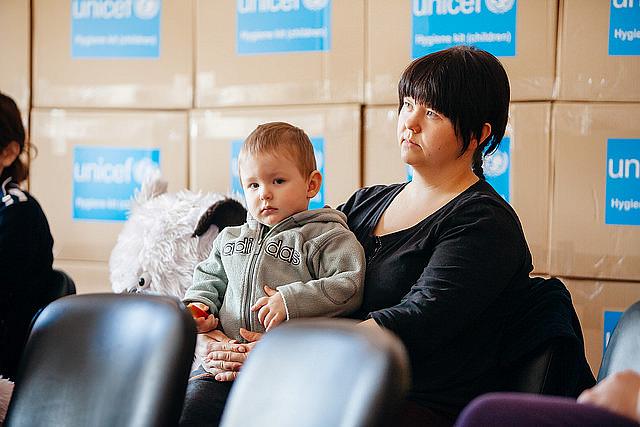Toxic stress: The next major American public health issue?

I first came across the idea of toxic stress while on a reporting trip to Rochester, New York. It was my first trip as a new full-time producer at NPR’s Latino USA. The story we were there to report was a particularly sad one. It focused on the frighteningly high infant mortality rate among black and Latina mothers in the area.
Rochester is a city known for its medical facilities and yet in the center of this city babies born to black and Latina mothers are three to four times more likely to die before they reach the age of one than babies born to white mothers.
We spent days talking to mothers who had suffered this loss. Their heartbreak was palpable. We also met and followed the outreach workers and doctors who were trying to bring these numbers down. Their determination to fight this problem was obvious to anyone who met them. It was one of these doctors, Jeff Kaczorowski, who said the words “toxic stress.”
Dr. K, as he is most commonly called, decided he needed to take on the issue of infant mortality after years working in an emergency room and experiencing first hand the toll that watching babies die took on the hospital staff, in addition to the expected trauma for the mothers.
He talked about the emerging research happening at places like Harvard, where people were beginning to understand that high amounts of stress hormones released in the body can have a negative effect on neurological development, leading to poor performance in school and lifelong health issues.
Toxic stress was mentioned as a possible contributor to infant mortality in the final piece, but we barely scratched the surface of it. I was intrigued. Having grown up around foster children, some of the long-term effects — like higher rates of addiction and mental health issues — were things I recognized as commonplace in many of the people I had known.
So I started looking into it. A few months later, Latino USA aired an explainer piece I did on the subject. I spoke with three doctors who were able to talk specifically about how overproduction of the stress hormone cortisol can affect youth brain development, the development of the immune system, and increase the chances that one will suffer from a chronic disease.
The doctors spoke of poverty being a major factor. Poverty doesn’t always lead to instability, but it can. Imagine having no idea where your next meal will come from, or having to move often because you can’t afford to maintain consistent housing. Perhaps children are living in a home with a parent who suffers from addiction and whose behavior changes depending on the status of their sobriety. These are the types of high stress situations that can cause a child’s body to overproduce cortisol. Cortisol helps us to be ready for a challenge, but being ready all the time is too much.
Dr. Nadine Burke Harris called toxic stress an emerging public health issue:
“It’s, for me, like the discovery of bacteria. You mean bacteria causes disease? You mean that childhood adversity causes all of these issues? And a lot of this is something we can do something about. I’m really excited about what’s going to come in the next 15 to 20 years. For me it will be like lead poisoning or tobacco or any other major public health crisis.”
I’ll explore this idea of toxic stress as a public health concern for the USC Annenberg 2015 National Health Journalism Fellowship. My specific focus will be underserved communities, where people frequently interact with certain public services in a way that other communities might not. Foster children live in a system overseen by the state in which they reside. Young single mothers in poor areas such as the Bronx in New York City are more likely to receive some sort of government assistance. Unaccompanied child migrants often end up in America’s immigration system and public schools.
I’ll be reporting on this issue and these groups on both a policy level and on a personal level. I am hoping to explore how awareness of toxic stress is being integrated into services and into the lives of the people who use them. Before moving into journalism, I worked with the storytelling group The Moth as a coach in their outreach program. I’ve found that when it comes to health issues that do not manifest in a way that’s easy to see, hearing someone’s personal narrative can be an extremely helpful way to make people really understand how these health issues impact the lives of people who live with them.
[Photo by UNICEF via Flickr.]

